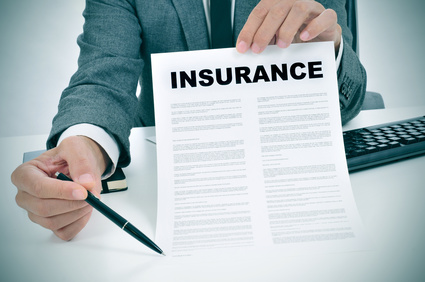Homeowners insurance is a necessary expense for anyone who owns a home in New Jersey. Oftentimes when this type of insurance is purchased, the homeowner will either go with the cheapest option available or simply pick a policy without fully looking at exactly what is covered. The result of hastily choosing a homeowner’s policy is that the homeowner often merely assumes what the policy covers and then has an unfortunate eye-opening experience when a claim needs to be made. There is a vast difference in the amount of coverage someone can receive from a homeowner’s policy so it is important to know exactly what is being covered and what is excluded with the policy that is chosen that way there will be no unfortunate surprises when a claim is made.
Water
Water damage in a house is not always covered under a homeowner’s policy. According to Time Money, in the recent past insurance companies have been cutting down on the coverage for water damage caused by leaky pipes, toilets, and clogged drains. The main reason for this reduction is coverage is the potential of mold growth that can cause extensive damage that the insurance company would then be responsible for covering. Therefore, several insurance companies have capped mold coverage and others won’t cover it at all. Other coverage from water damage usually has extreme time limits on it that would exclude any damage that is caused by water by the time it was noticed by the homeowner.
There are ways New Jersey homeowners can get around the limited coverage for water damage. Homeowners can purchase a rider that specifically covers backups of drains and sewers. This type of rider will increase premiums by as much as 20%. Homeowners who don’t want to incur the expense of higher premium costs can take some extra precautions around the house to prevent the damage from occurring in the first place. Wireless water alarms can be purchased for a nominal cost. These alarms should be placed behind the water heater and washing machine. They’ll go off when even a small leak is detected. It’s always a wise idea to keep an eye on the water bill to check for unusually high water usage that can indicate a water leak.
Wind
Wind is a natural occurrence that can cause severe damage to a house located in New Jersey. In many states, regular deductibles don’t cover damage done by high winds. These states have special deductibles that can range between 2-5% of the property coverage. This type of coverage can cost a homeowner tens of thousands of dollars before the coverage kicks in.
To offset this lack of coverage, homeowners should keep their deductible at 2%. Raising it to 5% does not save enough money to make it worthwhile. Also, homeowners should take a proactive and preemptive attitude and reserve enough money to cover the deductible should disaster strike. Homeowners who don’t have enough cash can consider opening a home-equity line of credit that they can draw from if the need arises.
Rebuilds
Homeowner’s insurance is generally designed to rebuild a structure to its original state rather than updating it and making sure it meets current building codes. However, homes that are damaged often need the updates, which can cost a significant amount of money, much more than the amount typically allotted by a homeowner’s policy.
Homeowners can be prepared for potentially needed updates to a damaged home by increasing the policy coverage on an older home. Those who live in homes that are fewer than 10 years old should consider upping their dwelling coverage to about 10% for code updates. Those who live in homes that are older that or are in disaster-prone areas should consider having dwelling coverage of 10-20%. If the cost of added coverage is too high for a homeowner to bear, it is a good idea to increase the deductible on the policy to help offset the cost.
Floods
It is no secret that private insurance companies do not offer flood insurance. People who live in flood-prone areas need to purchase separate flood insurance through the National Flood Insurance Program. Since this is the case, many homeowners who don’t reside in high-risk zones opt to take the gamble and don’t purchase it. Unfortunately, this is an unwise decision as oftentimes any type of flood damage can cost thousands of dollars to repair.
The best way to remedy this issue is the simply bite the bullet and pay for flood insurance if the dwelling is anywhere near a body of water, even if the area is not prone to floods. People who do live in high-risk areas should consider purchasing extra flood insurance to cover the items that traditional food insurance does not include. Also, people who live in flood-prone areas should act with prudence and avoid keeping anything of monetary or sentimental value in a basement where it might be ruined by floodwaters.
There is more than a small nugget of truth to the old adage that an ounce of prevention is worth a pound of cure. This is especially true when it comes to homeowner’s insurance. Homeowner’s insurance should not be scrimped on. New Jersey homeowners who cannot afford extra coverage should put some money in reserve in case they have damage that a policy will not cover. Acting with wisdom and prudence when it comes to homeowner’s insurance can go a long way in making sure a home is well protected.
Thank you for reading our blog! How can we help you? Contact us today.



